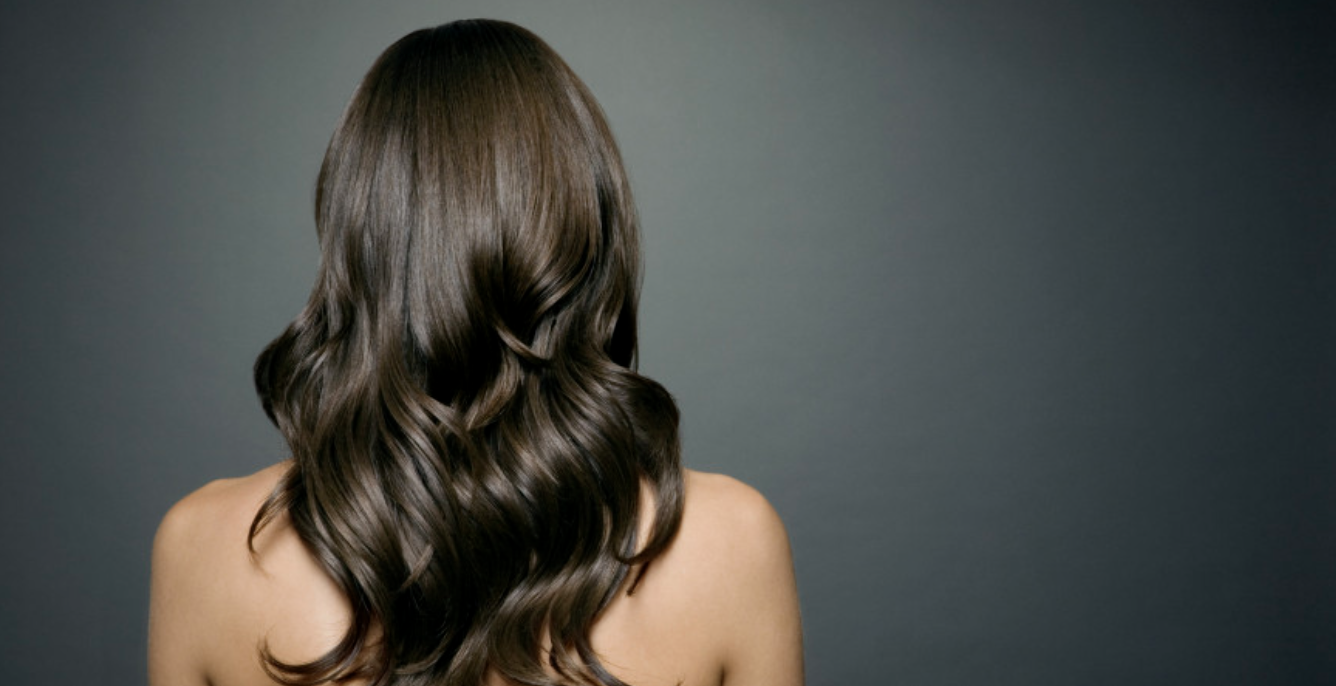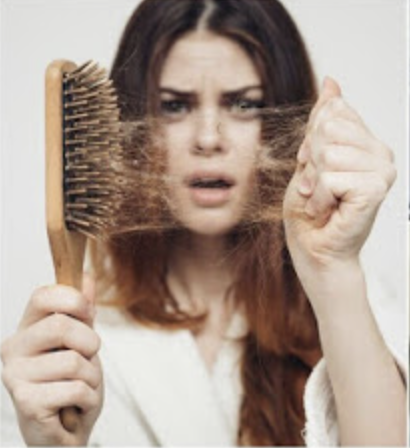Understanding the Connection Between Hormones and Hair Loss
A symbol of femininity for so many women, our hair demands attention. Both deeply personal and superficially public, changes in the looks of our hair can inspire a range of emotions, driving us to willingly partake in its cutting, straightening, curling, bleaching, darkening, or other aggressive chemical treatments. Hair is part of who we are and how we present ourselves to the world.
Thinning, dry hair is actually a symptom of internal changes in the body. Perhaps viewed by some as a normal, inevitable sign of aging or response to stress, losing hair is oftentimes related to endocrine imbalances. When it comes to any problem, the first step is to find the root cause. There are typically four main causes of hair loss:
- Heredity
- Hormonal changes
- Medical conditions
- Medications
A symbol of femininity for so many women, our hair demands attention. Both deeply personal and superficially public, changes in the looks of our hair can inspire a range of emotions, driving us to willingly partake in its cutting, straightening, curling, bleaching, darkening, or other aggressive chemical treatments. Hair is part of who we are and how we present ourselves to the world.
Thinning, dry hair is actually a symptom of internal changes in the body. Perhaps viewed by some as a normal, inevitable sign of aging or response to stress, losing hair is oftentimes related to endocrine imbalances. When it comes to any problem, the first step is to find the root cause. There are typically four main causes of hair loss:
- Heredity
- Hormonal changes
- Medical conditions
- Medications
|
Stress-Tress Connection.
Bluntly speaking, stress makes your hair fall out. This is largely because stress puts you in survival mode, diverting resources away from good skin blood flow, adequate digestion, sleep, growth, etc. so the energy can be used instead for fight or flight. Stress molecules like cortisol can target and damage the hair follicle. Symptoms of sudden bouts of hair shedding with little to no hair growth are suggestive of telogen effluvium – a condition where hair in the anagen (growing) phase prematurely enters the telogen (resting) phase. Life Cycle of a Hair:
Anangen - growth phase, approximately 90% of your scalp is in the anlagen phase. Catagen - Transition phase, during which hair stops growing actively. Telogen - shedding phase, when hairs are pushed our of the follicle. |
Hair Follicles Cycle btwn Rest & Growth.
This human hair follicle is an intriguing structure! Hair follicles are incredibly productive, constantly undergoing cyclical rounds of rest (telogen), regeneration (anagen) and degeneration (catagen), and they are unique in this ability to dynamically alternate between rest and active growth. |
Sex Hormones.
PREGNANCY: Pregnancy increases the number of hair follicles in the anagen (translation: massive growth) phase. The enhanced supply of estradiol and progesterone in pregnancy are particularly nurturing to hair, expanding the growth phase and preventing shedding... until postpartum when hormones are trying to recalibrate themselves and oftentimes hard starts falling out in depressing clumps. The good news is this will usually correct itself. MENOPAUSE: Along those lines, when the levels of estradiol and progesterone fall in menopause, hot flashes and night sweats are not the only symptoms that seemingly appear out of nowhere. What many women are unaware of and unprepared for is the fact that they may also find themselves facing hair thinning. And just like the postpartum hair loss, it has everything to do with hormones. However, unlike the postpartum period, hair loss in menopause is irreversible, unless hormone replacement therapy is introduced. |
Natural Hair Loss Remedies (by Josh Axe, DC, DMN, CNS)
Top Hair Loss Remedies: Foods to Eat. A whole foods, nutrient-rich diet is crucial to supporting healthy hair growth. There are many food choices that can help to fend off hair loss, but these are some of my personal favorites:
Top Hair Loss Remedies: Supplements
Top Hair Loss Remedies: Essential Oils and Other Oils for Stimulating Hair Growth. You can use essential oils to make some of best topical home hair loss remedies.
Top Hair Loss Remedies: Foods to Eat. A whole foods, nutrient-rich diet is crucial to supporting healthy hair growth. There are many food choices that can help to fend off hair loss, but these are some of my personal favorites:
- Organic foods — Choose these foods because they’re free of chemicals. Chemicals can act as endocrine disrupters interfering with hair growth.
- Pumpkin seeds — Pumpkin seeds are one of the top foods high in zinc, which is necessary for healthy hair health. Research has also shown that a zinc deficiency is linked with hypothyroidism and hair loss.
- Wild-caught fish — Wild-caught fish like salmon are high in omega-3 fats, which decrease inflammation while supporting hair growth and hair thickening.
- Green tea — Green tea helps promote detoxification and contains antioxidants that promote hair growth. It also may stop the conversion of testosterone into DHT.
- Super seeds — Chia, flax and hemp seeds are high in fiber and healthy fats that can help aid hair growth.
- Bone Broth — High in protein, collagen and amino acids, bone broth the perfect food for encouraging healthy hair growth.
- Caffeine — Yes, not technically, a food, but caffeine has been show to spur hair growth. According to research, caffeine stimulates hair shafts and helps them grow faster, by damping down the effects of DHT, a substance that infamously slows hair growth
- Trans fatty acids — Unhealthy fats like trans fatty acids have been shown to increase inflammation and production of DHT, which can cause hair loss. Stay away from hydrogenated oils like corn oil and soybean oil, which are loaded with trans fats.
- Sugar — Sugar plays a role in hormones imbalances, contributes to insulin resistance, increases DHT and causes inflammation, all of which can lead to hair loss.
- Processed foods — Foods that are highly processed are often loaded with unhealthy fats, sugar and sodium so they’re very counterproductive to healthy hair growth.
- Alcohol — Alcohol can increase inflammation and cause liver toxicity, leading to hair loss. Heavy drinking as well as smoking have both been linked to increased risk of hair loss.
- Caffeine — Wait, didn’t I say the opposite above? Yes, in small amounts, organic coffee and tea can be beneficial to hair health, but you don’t want to overdo it because too much caffeine can cause dehydration, hormone imbalances and even production of DHT.
Top Hair Loss Remedies: Supplements
- Protein Powder from Bone Broth (1–4 servings daily depending on body weight and individual needs): You can also get your daily dose of bone broth from a protein powder. Bone broth powder is rich in protein, collagen, gelatin, glucosamine, chondroitin and key minerals often missing in the average diet. These vital nutrients support and promote healthy hair growth as well as a wide range of additional health benefits.
- Saw palmetto (320 milligram daily): A natural DHT blocker that can greatly improve hair growth.
- Pygeum (100 milligrams 2x daily): Addresses the cause of hair loss by blocking DHT binding sites and improving prostate health.
- Pumpkin seed oil (8 grams or 1 tablespoon daily): Inhibits DHT formation throughout the body and contains fatty acids that support thick hair.
- Fish oil (1,000 milligrams daily): Fish oil helps reduce inflammation and thicken hair.
- Aloe vera juice (1/2 cup 2x daily and shampoo): Aloe vera juice can help naturally thicken hair.
- Ashwagandha (500 milligrams daily): Adaptogen herbs like ashwagandha help your body adapt and deal with stress, balance hormones and reduce cortisol levels (also known as the aging hormone), which all help encourage healthy hair growth.
- Rhodiola (500 milligrams daily): Another awesome adaptogen herb to fend off stress and foster hair growth.
- B-Complex vitamins (1 tablet daily): B vitamins aid in healthy stress management. Biotin or B7 helps thicken your hair naturally and vitamin B5 (pantothenic acid) supports your adrenal glands.
- Zinc (8 milligrams daily for women/11 milligrams daily for men): One of the signs of a zinc deficiency is hair loss. Zinc also boosts your immune system and helps repair your gut.
Top Hair Loss Remedies: Essential Oils and Other Oils for Stimulating Hair Growth. You can use essential oils to make some of best topical home hair loss remedies.
- Rosemary is one of the top essential oils when it comes to enhancing hair thickness and growth. Rosemary oil is believed to increase cellular metabolism that stimulate hair growth. Research published in 2015 even shows that rosemary oil appears to work as well as minoxidil, a conventional topical hair loss treatment.
- Spikenard oil is known for promoting the growth of hair and slowing down the graying process of graying. A 2011 animal study found that spikenard oil showed positive effects on hair growth activity. When using spikenard extract, there was a 30 percent reduction in the time it look for the hair to grow back on the tested rats, which makes it promising for human use.
- Lavender, thyme, cedarwood, sage and peppermint are other great options that may help increase scalp circulation. One recommendation to stimulate new hair growth is to combine three to four drops each of peppermint, rosemary and sage in one tablespoon of olive oil (I also recommend coconut oil or jojoba oil). Then you simply massage the mixture gently into the area(s) of concern one to two times each day

